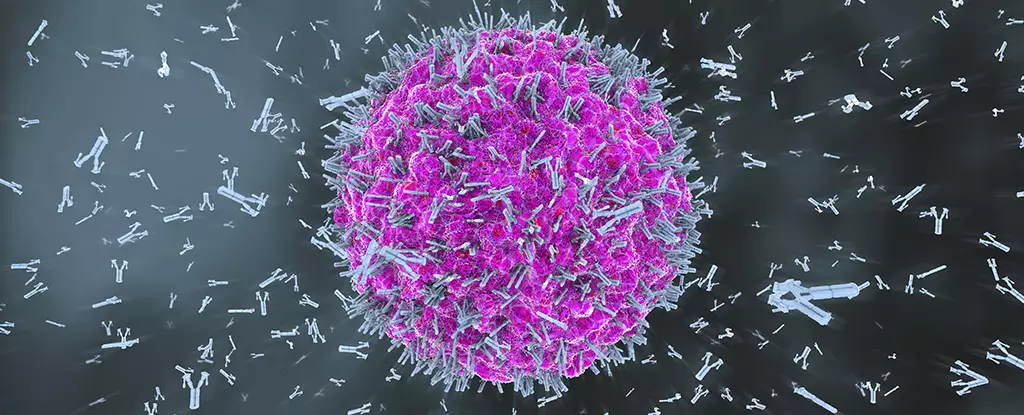The immune system is a complex network of cells, tissues, and organs that work together to defend the body against harmful pathogens. When this system malfunctions, it can lead to a variety of health issues, including autoimmune disorders. Scientists have long been interested in understanding the intricate mechanisms behind immune system regulation, and a recent study has shed new light on the role of protein degradation in this process.
Researchers from the Swiss Federal Institute of Technology Lausanne have identified a crucial ‘switch’ that deactivates a sensor of foreign DNA within the body. This sensor, known as cyclic GMP-AMP synthase (cGAS), is responsible for identifying invading viruses and triggering an immune response. However, it is essential for cGAS to be tightly regulated to prevent it from attacking healthy cells unnecessarily.
The study reveals that a protein complex named CRL5-SPSB3 plays a critical role in marking cGAS for disposal when it is not needed. By adding a chemical called ubiquitin to cGAS, CRL5-SPSB3 effectively switches off the enzyme, preventing it from causing harm to the body. This mechanism ensures that cGAS is only active when there is a genuine threat from foreign DNA.
Autoimmune disorders, such as type 1 diabetes and inflammatory bowel disease, occur when the immune system fails to distinguish between healthy cells and foreign invaders. The new research suggests that understanding the regulation of proteins like cGAS could provide valuable insights into the development of effective treatments for these conditions.
The study also highlights the importance of the interferon (IFN) pathway in controlling the immune system response. Both cGAS and CRL5-SPSB3 are involved in this pathway, playing a crucial role in determining whether the immune system should be activated or deactivated. By gaining a better understanding of how these proteins work, researchers may be able to develop targeted therapies to modulate the immune response in autoimmune disorders.
The discovery of the protein degradation switch for cGAS regulation opens up new avenues for research into immune system modulation. By unraveling the intricate mechanisms that control the activity of key immune system proteins, scientists hope to develop novel approaches to treating a range of immune-related conditions.
The study provides valuable insights into the regulation of the immune system and highlights the importance of protein degradation in maintaining immune system balance. Further research in this area is crucial for developing targeted therapies for autoimmune disorders and other immune-related conditions. By understanding the complex interplay of proteins like cGAS and CRL5-SPSB3, we may unlock new possibilities for treating and preventing immune system dysregulation.


Leave a Reply